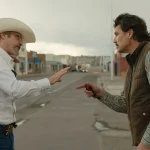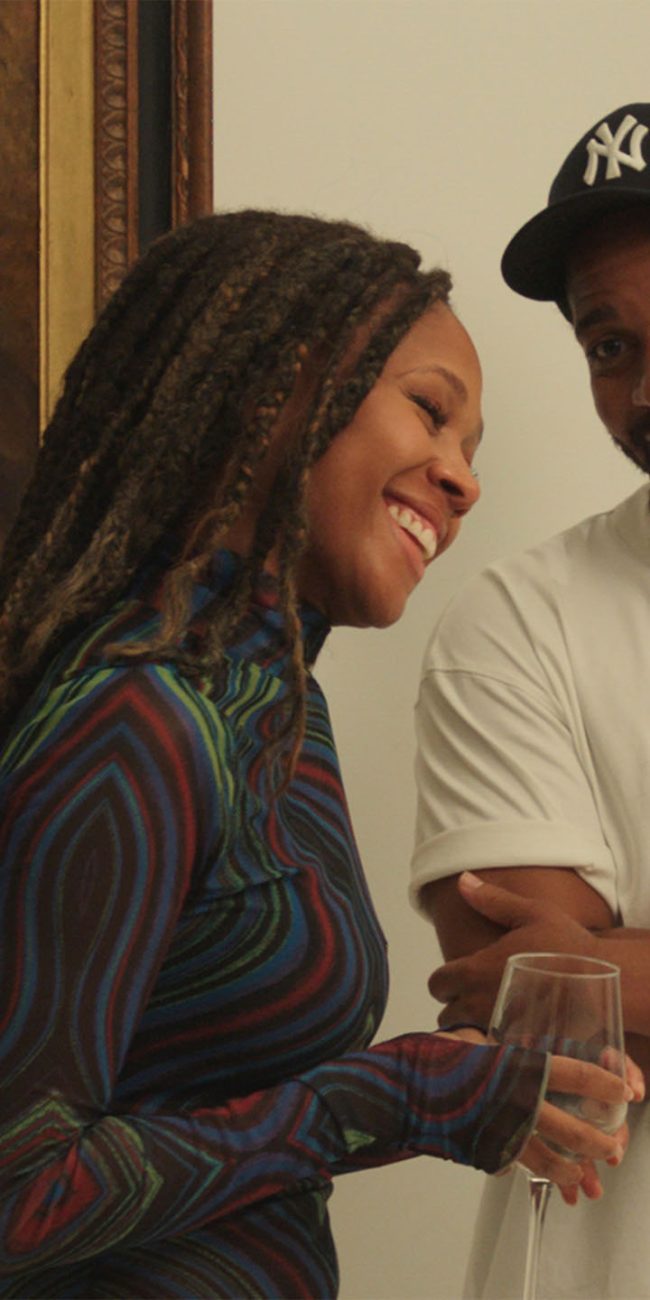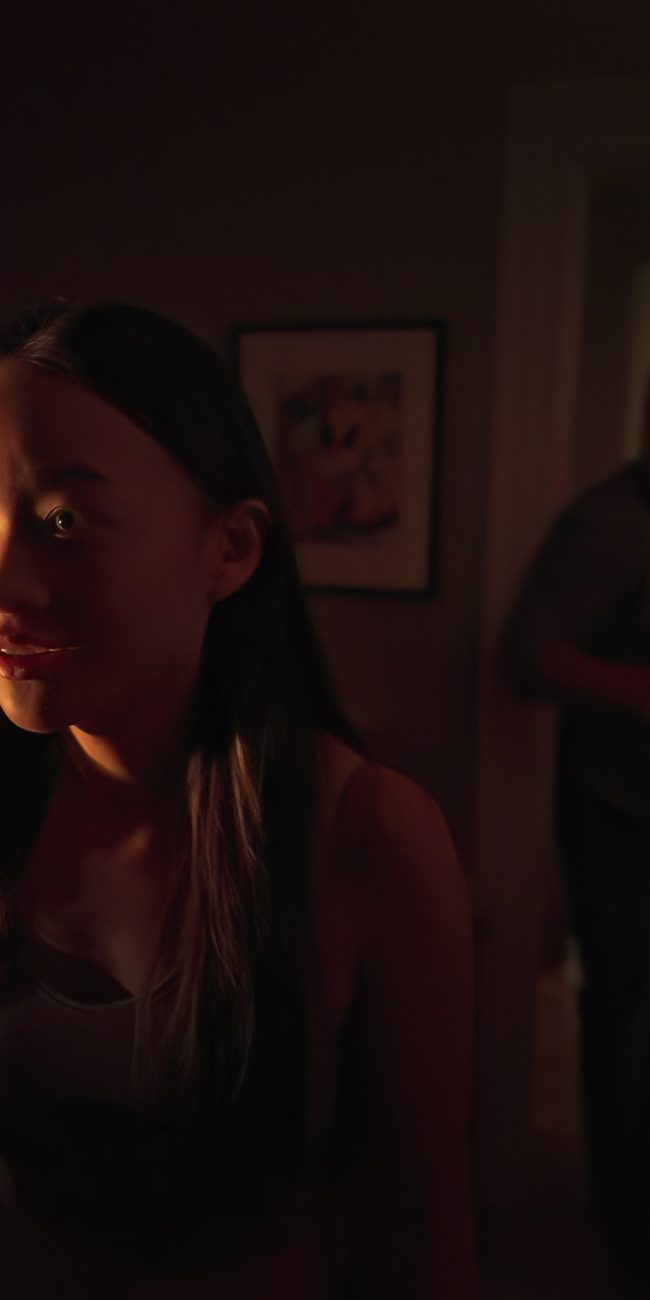A Conversation with Nancy Savoca & Richard Guay (DOGFIGHT)
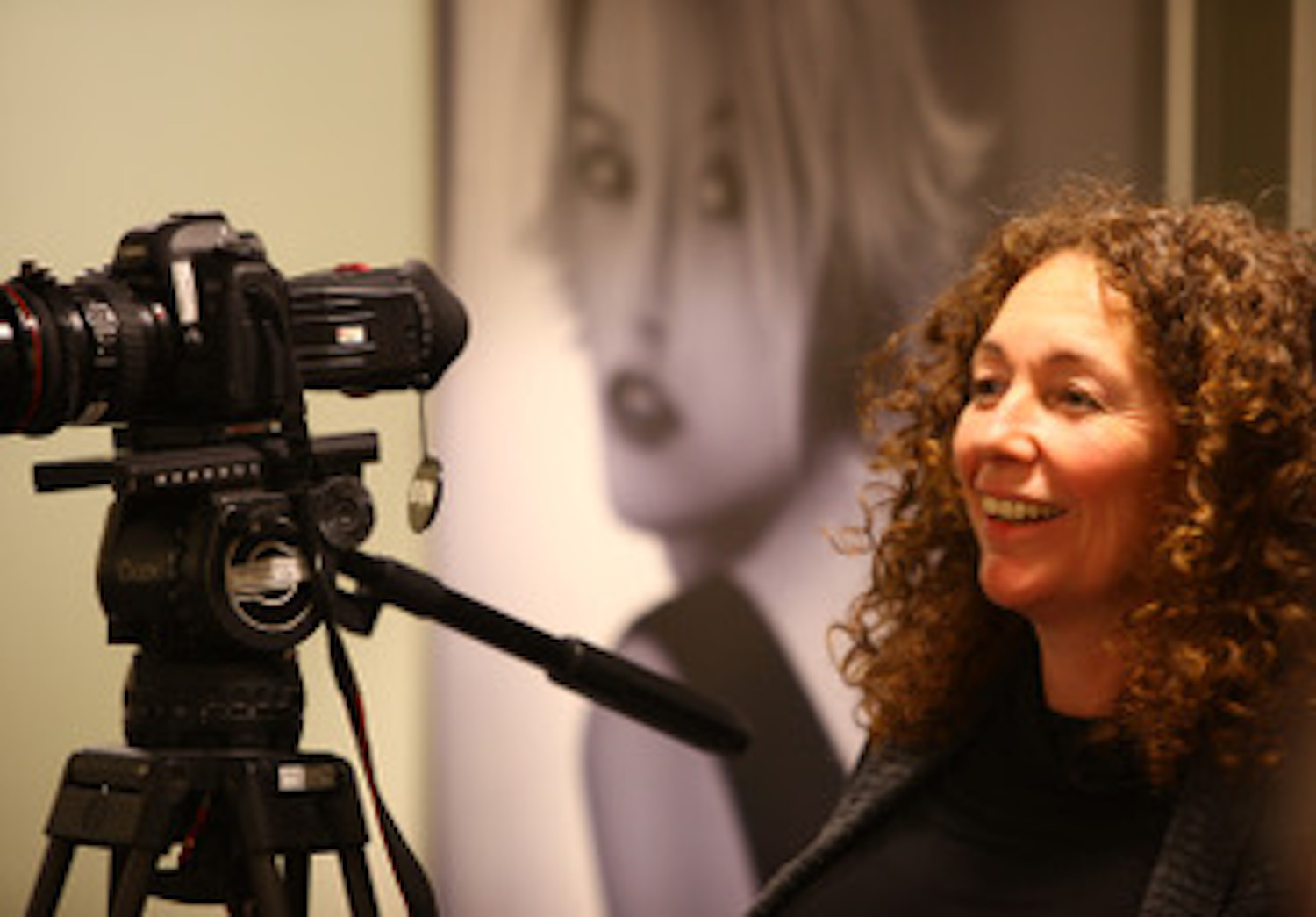
In 1991, filmmaker Nancy Savoca directed her second feature (after True Love), Dogfight, starring River Phoenix and Lili Taylor. Working off an original script by Bob Comfort, Savoca told a moving story of how friendship and love can develop in even the most unlikely situations (or perhaps because of them). Set mostly in 1963, on the day before John F. Kennedy’s assassination, the movie follows a group of marines, about to be shipped off to Vietnam, as they engage in an act of stunning cruelty: each puts $50 into a communal pot, and the winner of all that money will be the one who brings the ugliest date (according to them) to a party they’ve organized (the titular “dogfight”).
One of these men, Eddie Birdlace (Phoenix), picks Rose (Taylor), a sweet folk-music-inspired and idealistic young woman who has no idea what he has in store. Once Rose figures out the scheme, she is justifiably livid, but Eddie’s subsequent remorse leads him to make amends. What then transpires is an actual date, walking through San Francisco, punctuated by meaningful conversations and some eventual romance. Neither expected this, which is what makes it so sweet.
The film offers genuinely poignant moments and memorable performances from the two leads. Sadly, two years later, Phoenix would die from a drug overdose. Savoca, supported throughout the process by her producer husband, Richard Guay—with whom she rewrote parts of the screenplay—delivers a gentle masterpiece which, at the time, was neglected by the studio (Warner Bros.) that made it.
But now everyone can once again enjoy the movie, thanks to a brand-new Criterion Blu-ray, showcasing a 2K digital restoration. The disc includes commentary from Savoca and Guay, along with the following additional supplements: an interview with Savoca and Taylor, conducted by filmmaker Mary Harron; additional interviews with many of the significant creative crew; an essay by film critic Christina Newland; and the trailer. On the occasion of the Criterion release, I had the opportunity to chat by Zoom with Savoca and Guay. Given how much I have always admired Dogfight, it was a great pleasure to talk to them. What follows is a transcript of our conversation, edited for length and clarity.
HtN: How did you come to be presented with Bob Comfort’s script, and what was your initial reaction to it?
Richard Guay: We got to see it out of True Love winning the Grand Jury Prize at Sundance. It was a mad rush. That was a big year for Sundance. Actually, it was called the United States Film Festival and then came …
Nancy Savoca: Going in, it was the U.S. Film Festival. Coming out, it was Sundance.
HtN: And that was the Sex, Lies, and Videotape year, right?
NS: Yes. And Roger & Me.
RG: But we were not at Sundance, because Nancy was giving birth the night they announced the Grand Prize winner. So we had a very little baby and there were tons of submissions and agents wanting to sign her and all of this stuff. And among them was this script from producer Peter Newman called Dogfight, which I had taken a look at. And I thought, “Wow, this is interesting.” And I gave it to Nancy.
NS: The difference between Dogfight and the other scripts that were coming our way was that after True Love won, everybody who had a script that had Italian girls or Jersey girls or girls partying or girls wanting to get married, or whatever girls want to do, sent us their script. And it was the last thing that I was interested in doing. And Dogfight was so different.
RG: But having said that, we had a six-week-old baby.
NS: And a two-year-old toddler.
RG: And a two-year-old toddler. And so basically Nancy passed, saying, “Love the script,” but…
NS: I wasn’t ready to go into production, which is like going to war.
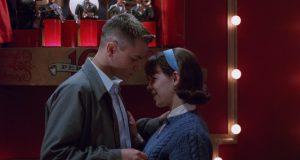
A still from DOGFIGHT
RG: And then, I don’t know, it was probably six months later, I just picked up the phone one day and called Peter and asked, “So, what’s happening with that script?” And he said, “Well, your timing is good, because we had another director attached who just fell out and I don’t know, is Nancy interested in getting involved?” And at that point, it took a few weeks to get things going. But as luck had it, and we were lucky in those days, Nancy had a meeting set with Warner Bros. on a Friday in early November or late October, and we coincided that with the opening of True Love in L.A., because we were on our own dime in terms of going out there. So we were going out with the opening, too.
And the L.A. Times review spoke about “the debut of a major new American filmmaker.” And that review hit the desks on Friday morning, and that day at noon, Nancy was in the office of Warner Bros. So that was all really positive. And I wasn’t at that meeting, but I think it went really well. But River Phoenix was already attached to the project, so the next step was for Nancy to talk to River.
NS: He was in Gainesville in Florida and I was in New York. And we ended up having this really nice conversation that lasted a couple of hours, I remember that he talked a lot about why he wanted to do the film and asked me why I wanted to do the film. And we had very similar reasons. We were really interested in the difficulty of the subject matter, and we were both really not at all interested in making a statement of “this is wrong,” because that would be the most obvious, simple-minded way to look at it, but more like an exploration of how this can happen and who are these folks and who are those boys and who is that girl?
And for me, I added on top of that, “What is this time?” Because very often, when you hear about “the day America lost its innocence,” I was always very curious about what that really meant. And so I was very curious about that era. It was not my time. I was a little bit young for it, but I did have two older sisters who were teenagers when I was born, and I did grow up with sisters who would tease their hair into beehives and spray Aqua Net on me as I watched them in admiration. So I have very clear memories of that era as a kid.
HtN: So, I watched the interview on the Blu-ray that Mary Harron conducted with you and Lili Taylor.
NS: Didn’t she do an excellent job, that Mary?
HtN: She did. It was a nice conversation. And you talk in that interview about making changes to the script. You don’t need to enumerate every one, but could you talk broadly about what approach you took to altering the script when you thought it needed altering?
NS: Well, it was interesting, because when we started work on it, I reached out to Bob Comfort. It was his story. It was actually his own experience. And I am forever grateful that Bob had the bravery to want to look at this thing that happened to him that he was a part of as a young guy. And he gifted us a great story.
When we got Lili on board to play Rose, I started seeing that there was going to be some excavation of her character, which would then, of course, have to influence the Birdlace character because they fed off each other. Any change made in her was going to affect him. So all of this I saw coming up and I approached Bob and said, “We do have some notes that we’re going to be working on now that we have a cast.” And at that point, he was very tired, I think, of having gone through so many different directors, and he basically gave us his blessing and said, “I’ve done the work I’ve done on this script, and you guys need to do what you have to do.”
HtN: And Rich, from the interview I watched, you did some of the rewriting as well, right?
RG: Nancy and I did it together, yes. The focus was on the Lili character and what that meant and who she was and why would he pick her, why would she come back after she finds out the truth?
NS: I think the struggle that Bob had, which is what made the script stand out for me, was that it was a struggle. There was a struggle in the storytelling, already. There was a struggle in the performances, and there was a struggle in the filmmaking. His struggle to tell the story was really so focused on what he went through, which totally makes sense, that what ended up happening for me as I read the girl is that she was served up as a catalyst for the guy to learn something and come out the other side, though certainly nothing is resolved. But my interest was if he was going through something, then she was going through something, too. Again, changing Rose always affected Eddie, always.
HtN: Of course. In both the interview that Mary Harron conducts with you and Lili, and in the interviews you, Rich, conduct with the creative crew that are also on the Criterion disc, both editor John Tintori and you, Nancy, talk about an alternate ending that the studio wanted to shoot because they didn’t like the ending that you had. What was that alternate ending that they proposed?
NS: It’s a mystery.
RG: Yeah, we don’t really know. The bottom line was that what is in the movie has always been the ending. That was Bob’s ending from the moment we read it. And it was one of the most appealing things about it, that it wasn’t resolved, that you went, “Wow, what’s going to happen to these people?” And so the studio did their thing with testing, and it didn’t test well. We were never privy to what the other ideas were for a different ending.
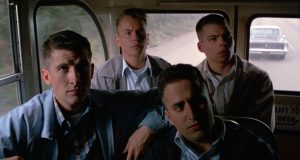
A still from DOGFIGHT
NS: But we knew that they wanted a happier ending. It’s almost like the old Hollywood story. They wanted the happy ending. And as Rich jokingly said one day, “Would you want us to win the Vietnam War? Because that would be happy ending. Is that what you want?”
RG: (laughs) I was young.
NS: But not only was that ending baked into the story through Bob’s script, but then Bob’s script put us on a path of really questioning everything and wondering, “Would this character really do this? Now that we see who these characters are, would they really do that? And by the time you get to the end, how are they possibly going to run off into the sunset together?”
RG: I think that’s what Nancy did, was really to heighten all those little hints that Bob had laid out in the script. Rose liked folk music, but Nancy imbued the character with that. Everything was about that. The soundtrack was about that, because the Rose character was a folkie.
HtN: Speaking of the soundtrack, I really do enjoy the music, from Joan Baez to Bob Dylan’s Don’t Think Twice, It’s All Right, which I understand, from listening to music supervisor Jeff Kimball talk on the supplemental materials, was the most expensive song on the soundtrack. It gives just a perfect tone for the ending.
I want to make sure I ask you about casting Lili Taylor and how you came to cast her because, of course, without her it would be a completely different movie. So, how did you cast her for the film?
NS: Because we were a Warner Bros. movie, I had the great privilege of working with their casting director, the legendary Marion Dougherty. Her taste in talent and her ability to see talent and potential in an actor was exquisite. I sat next to her and went to grad school in casting, sitting at her side. And every single one of her first choices for each role—every single one of them without exception—ended up in the film. I agreed with her on every single one. It was quite amazing.
The fact that tripped up some of the wonderful young actresses we saw was this fact that they were candidates for the dogfight. And how tricky that is when you’re talking to people in Hollywood, in an industry that is very, very much about judging a woman’s looks and body. So not everybody could handle that, but Lili came in and totally took it on.
HtN: Well, I’m so glad you did cast her because she’s amazing. As a side note about casting, did you have any sense that Brendan Fraser, who plays such a tiny part, was about to blow up? Encino Man comes out the year after.
NS: Not that he was about to blow up—that would’ve been too much—but the fact that he had potential, yes. Again, I was just parroting Marion Dougherty because she said he had talent. I could just see, in those few seconds that he’s on-screen for us, it’s like, “Oh my God.” But actually, most of those actors were really on their way. It was a candy store, really, with casting.
HtN: It’s a very strong ensemble. I want to next ask about a comment Bobby Bukowski, the cinematographer, makes in his supplemental interview. He mentions how you have a preference for the two-shot in dialogue scenes, and that you’ll cut to the single only at some point but you really prefer to hold on the two-shot for as long as possible. What is your approach, from your perspective, to filming a dialogue scene?
NS: I don’t think there’s just one rule for every movie, because every movie is so different. For me, I always feel like my job is to listen to what this material needs from me. And I often say that I’m like a singer of a song: I interpret the material. You could give that same material to somebody else and they’d interpret it differently, but my interpretation of that material is what I think the story wants. And for me, for Dogfight, it was very much about keeping these two characters in frame because they were such polar opposites, and I really appreciated, and hope that the audience appreciates, seeing their body language, because their bodies move so differently. In no way, no how, should they ever have met each other.
HtN: I have never seen the stage-musical version of Dogfight. In fact, I didn’t even realize there had been a musical version of it. What was it like to watch it?
NS: An out-of-body experience.
RG: The first few minutes, it’s like you’re listening to this dialogue and it’s like, “Oh my God,” and it’s being sung. And for me, after about 5 or 10 minutes, I just got lost in the story. It was actually really well done. We saw the New York production. It’s been on the road. I mean, I just recently read a review from Sydney, Australia, but I don’t know, I just got lost in it and I actually enjoyed it. And I’m not a musical person. I don’t tend to like musicals.
NS: We were really grateful to be invited to see it because we don’t get credited for the screenplay. We weren’t in the union, and so didn’t get credit. But it was just, as Rich said, really incredible to hear that dialogue being sung. It also took me a while to get into it because all I kept thinking is, “Wow, they saw music in this.” It just blew my mind. I was so in awe of the creative mind that would see this with music being sung, people singing to each other. So it was just wonderful. And again, it’s this idea that you can take this material and everybody’s going to have their interpretation of it. What a powerful story this is that you can do it in this way.
HtN: And that’s a great note to end on. Thank you so much for talking to me. So glad the film now has this amazing Criterion Blu-ray!
NS/RG: Thank you!
– Christopher Llewellyn Reed (@ChrisReedFilm)

